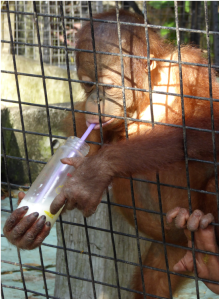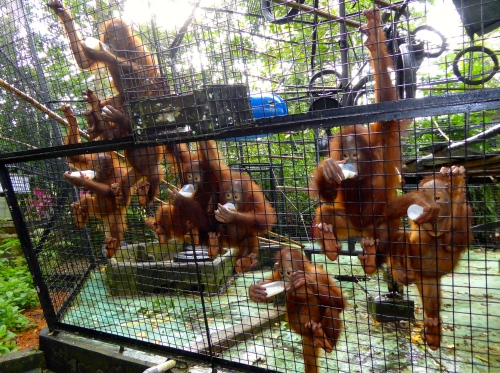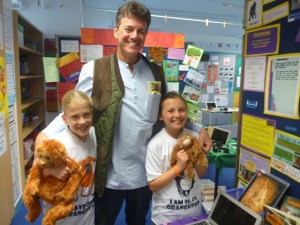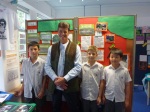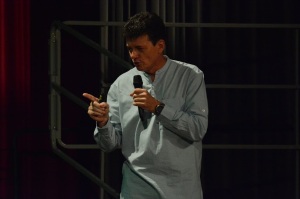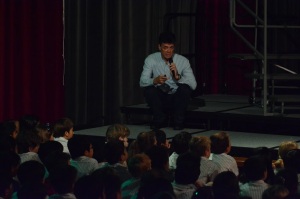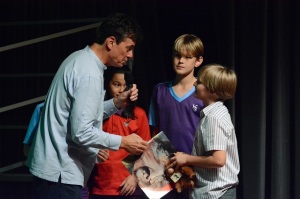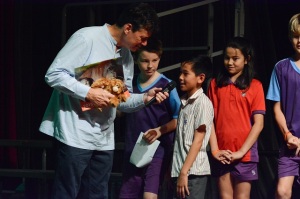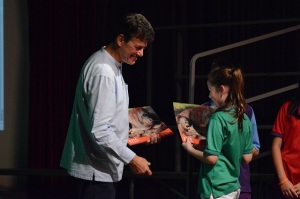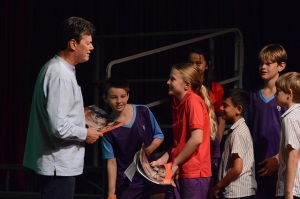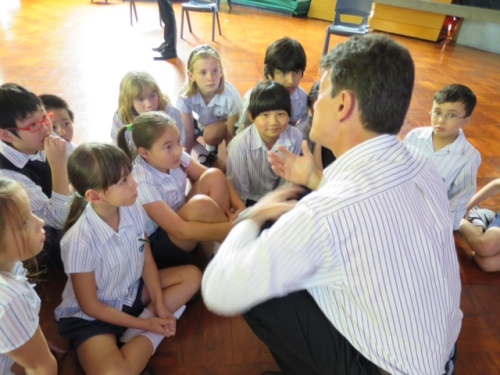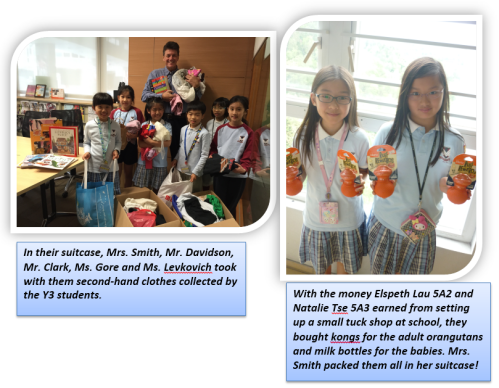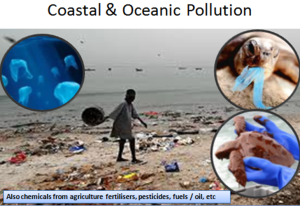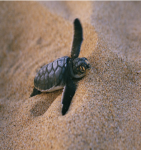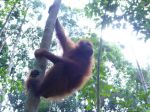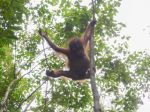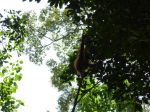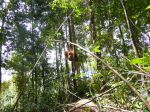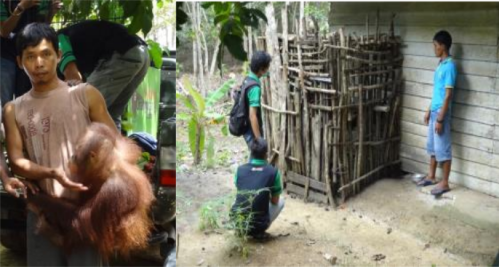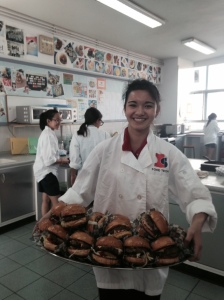We are going to start an ‘Orang-utan-a-Week’ article series and hope you will enjoy learning more about the wonderful orang-utans at the Sintang facility. There are currently 27 rescued adults, adolescents and babies being cared for at the centre. Many of the older orang-utans have been kept for many years illegally or semi illegally by their “owners”. Several of them were with powerful people in the local communities. It was not easy to free them because of those persons influence and the perceived risk by the forestry officials. However, all of the young orang-utans we are caring for started the same way, nammely, having their mothers killed, mostly due to habitat loss and poaching. Some of their mothers were eaten as bushmeat, others were killed when raiding gardens of local people.’There are 11 babies requiring a great deal of love and care, as well as education at ‘forest school’, this is so they learn how to be able to fend for themselves when they are released into the wild. We are going to start the series with one of the babies, namely ‘Gagas’.
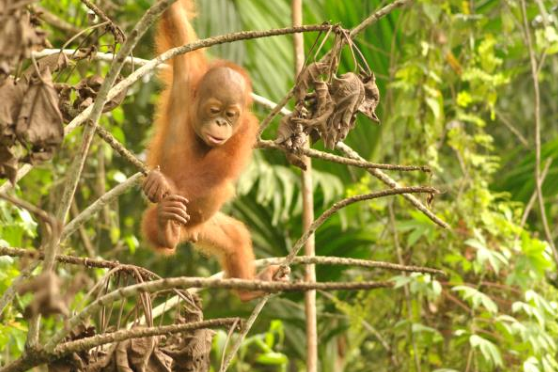
Gagas is sweet, sensitive and never bites, but does get a bit naughty (rolling on the floor crying!) when food is offered and he isn’t first to get it! He arrived at the centre on 21 January last year and is now about 3 years old. He is an active little fellow always up to something, but this usually happens low down as he doesnot seem to like to climb very high, neither in the socialisation enclosure nor in forest school! In addition, while climbing he likes to use the small flexible branches, that easily break and then he falls. However, letting himself fall on the forest floor is just his way of playing exciting games. We hope he will soon change his ways because for a wild orang-utan it could be dangerous to behave like that. Orang-utans usually spend all their time in the trees since there could be snakes and other dangerous creatures on the ground, which could bite and injure the orang-utans. In addition, Gagas could seriously hurt himself if he falls from greater heights.
Gagas is not the best nest builder. When the babies get browse in their sleeping baskets, that are purposely placed high in their enclosure to simulate the nests in the forest where they will soon go, he likes to take all of it out and bring the leaf material to the ground to play with. To motivate him to climb higher, we take him out to the forest school with specially selected other orang-utan babies that are better at climbing. For instance, when Gagas goes to the forest with Bembi or Iga he has to follow them higher up in the trees or he will be left alone on the ground. When he goes to the trees together with Terra or Ribang all of them tend to put in less effort in climbing, so it is important for us to carefully observe all the orang-utans all the time to see how we can motivate them the best to adopt natural behaviour.
In some ways, Gagas is rather a naughty baby, as he likes to take things away from Terra and other smaller babies! Luckily, because of his still rudimentary climbing skills, he is usually less successful because Terra and others can get away quickly.However, everybody has a special skill and Gagas’s special skill is the ability to solve complicated problems. For instance, when we were using enrichment with (palm-oil free) peanut butter he demonstrated what a smart boy he is! We applied the peanut butter to the underside of one of the platforms in the baby socialisation enclosure and the babies had to hold on to the boards and pull themselves up with widespread arms in order to lick off the sticky delicacy from the underside. Gagas was the first orang-utan to figure out that there was an easier way to do this! He grabbed one of the tyres, put it on its side underneath the platform, and stood on top of it whilst keeping his balance by pushing his hands against the bottom of the platform that he could now reach. Then, he carefully moved the tyre with his feet underneath all the patches with the interesting peanut butter and was able to get to it with the least energy expenditure! When you are not the strongest, it is useful to be smart and that intelligence is the way orang-utans cansurvive high up in the trees with difficult to reach food!
We are confident with more education, continued love, care and friendship, Gagas will dovery well in the future.
